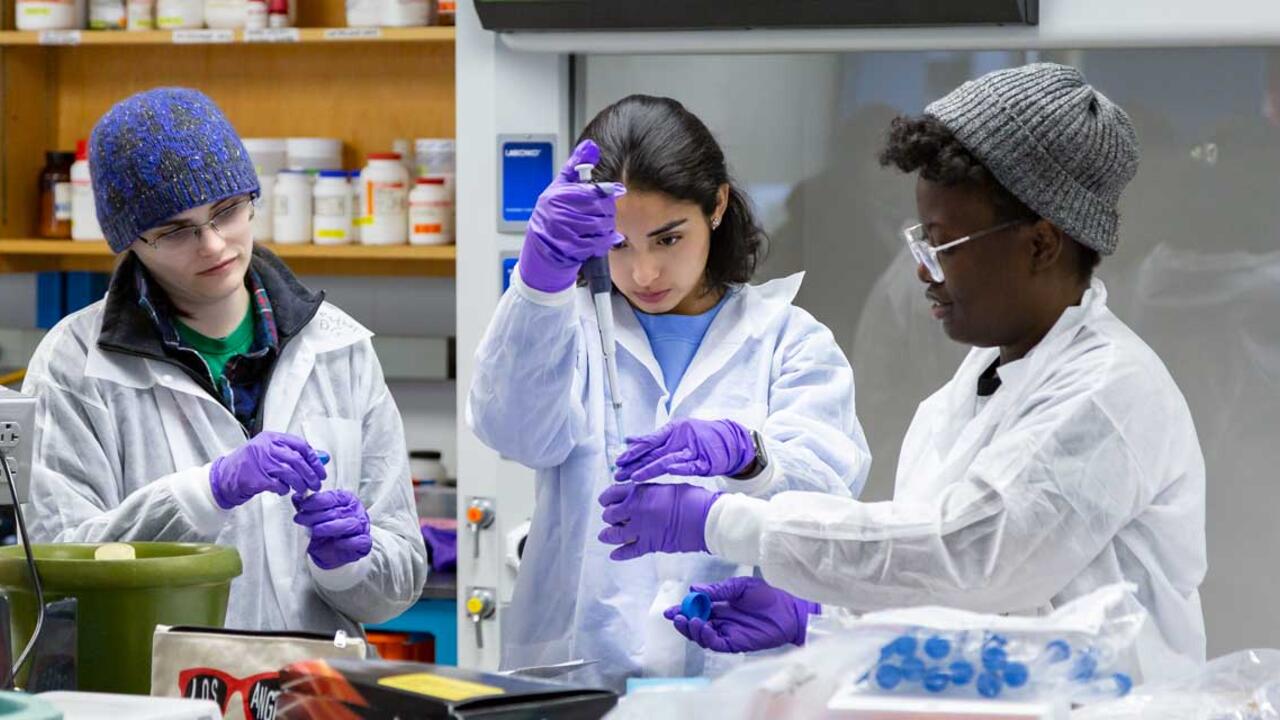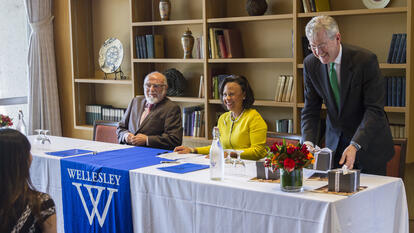Wellesley First-Years Learn the Rigors of Research at Biochemistry Boot Camp

During Wellesley’s winter break, one group of first-years assembled in a lab at the Science Center wearing white lab coats and gloves to participate in an experiential introduction to laboratory research called Biochemistry Boot Camp.
The Wintersession program, now in its fifth year and also open to sophomores, ran from January 16 to 25. The 13 participants, who had little or no prior experience with lab research, planned and executed the multi-step process of protein purification, or the separation of a protein from the complex mix of proteins present in a cell and to test their purified protein for a biological function.
Along the way, they learned commonly used biochemistry techniques and they were exposed to the emotional side of research—from the excitement when an experiment works to the disappointment and frustration that can come when it doesn’t.
Kayli Hattley ’22, who came to Wellesley from Houston with support of the Posse Foundation, said the boot camp experience made her feel more comfortable in a research lab.
“I’m interested in biochemistry as a major, so this is a unique opportunity to use lab skills and go through the experience of conducting science research,” she said.
Students were divided into research teams composed of two students and one mentor. The small-group setting allowed for more individualized attention from Julie Roden, instructor in biological sciences laboratory, Ayano Kohlgruber, postdoctoral student at Harvard Medical School, and the graduate students from Harvard University who volunteered to serve as mentors.
“The students all have an interest in scientific research, so this gives them an idea of what it means to do research,” said Roden. “Some students might find that they love research. Some might realize it’s not for them and they might choose some other field of study. But the boot- camp gives them a basis from which they can make an informed decision.”
Roden pointed to the bootcamp’s low-pressure approach to teaching students who are inexperienced in scientific research. “It’s an atmosphere of support,” she said. “The students share experiences to help each other and learn from our mentors who are passionate about science.”
Mentor Tommy Tullius, who studies biology at Harvard, said he valued the boot camp’s approach. “I like the interaction with the students,” he said. “The students are smart, enthusiastic, and eager to ask questions. This is more hands on and one-on-one.”
Aditi Kannan ’22 said the experience was a confidence-builder. “We’re all in the same boat—not experienced with scientific research but eager to learn,” she said. “We’re not doing this for a grade, so there’s no pressure, and the mentors do a good job talking us through the experiments. Plus, you don’t feel like it’s the end of the world if something goes wrong.”
Photo: Mentor Healther Gold (left) works with students, Alexandra Martinez Lopez ’22 and August Agyemang ’22, during Wellesley's Biochemistry Boot Camp.



